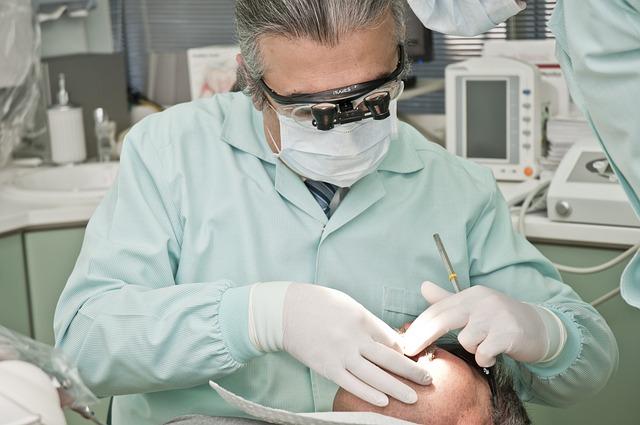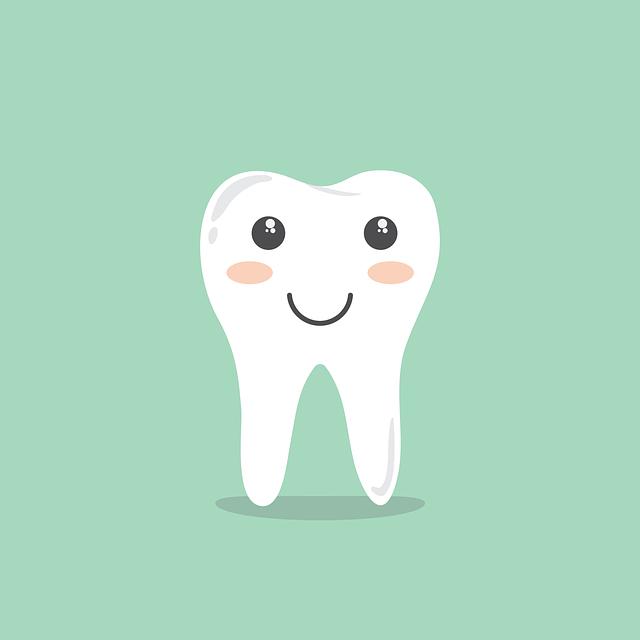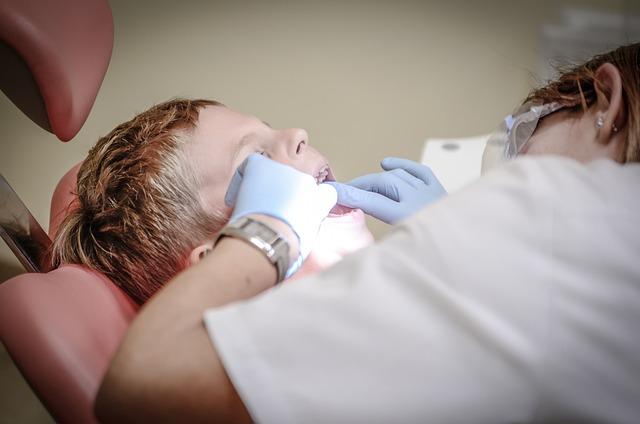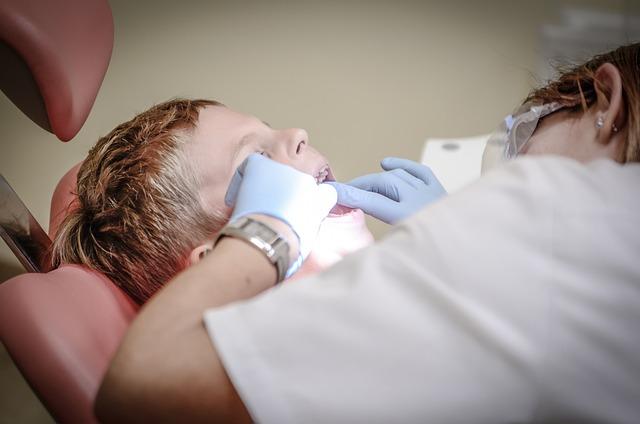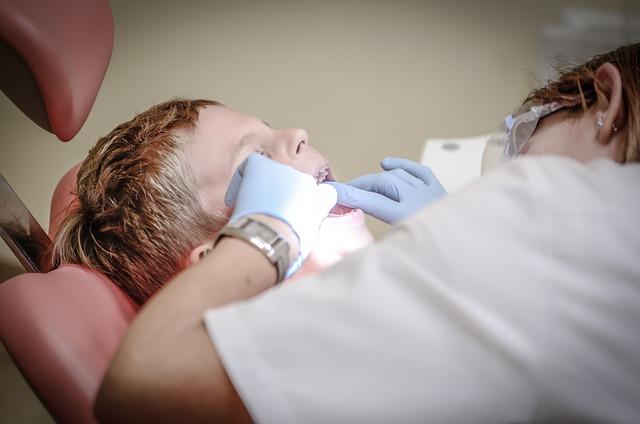Does Gargling Salt Water Help an Abscessed Tooth? Dental Expertise
Are you suffering from the throbbing pain of an abscessed tooth, desperately searching for a solution? Look no further! In the realm of dental expertise, one age-old remedy often emerges as a possible alleviator: gargling salt water. But does this simple concoction actually hold the power to soothe your dental woes? In this article, we delve into the depths of dental knowledge to uncover the truth behind this common belief. So, prepare to embark on a journey of clarity and discover whether gargling salt water can truly provide relief for an abscessed tooth.
1. Understanding the Benefits of Gargling Salt Water for an Abscessed Tooth: Insights from Dental Experts
Gargling salt water can provide several benefits when dealing with an abscessed tooth, according to dental experts. Here are some key insights:
- Reduces inflammation: Salt water has natural anti-inflammatory properties that can help reduce swelling and discomfort associated with an abscessed tooth. Gargling with warm salt water can provide temporary relief by soothing the affected area.
- Promotes healing: Salt water gargles create an environment that discourages bacterial growth and promotes healing. The saline solution can help cleanse the area around the abscessed tooth, reducing the risk of further infection.
- Relieves pain: The warm salt water acts as a mild analgesic, providing temporary relief from the pain caused by an abscessed tooth. Gargling with salt water can help numb the area and alleviate discomfort.
- Easy and cost-effective: Gargling salt water is a simple and affordable home remedy that can be done with readily available ingredients. It can be used as a complementary measure alongside professional dental treatment for an abscessed tooth.
While gargling salt water can offer some relief for an abscessed tooth, it is important to note that it is not a substitute for professional dental care. Consulting with a dentist is crucial to address the underlying cause of the abscess and receive appropriate treatment. Salt water gargles should be done in addition to, not instead of, seeking professional dental advice.

2. Exploring the Science: How Gargling Salt Water Can Alleviate the Discomfort of an Abscessed Tooth
Salt water gargling is a simple yet effective remedy for alleviating the discomfort associated with an abscessed tooth. When an abscess forms, it is usually due to a bacterial infection in the tooth or gums. Gargling salt water can help in several ways:
1. Reducing swelling: Salt has natural anti-inflammatory properties that can help reduce the swelling and inflammation around the affected tooth. It can provide temporary relief from pain and discomfort.
2. Killing bacteria: The saltwater solution creates an environment that is not conducive for bacteria to thrive. Gargling with salt water helps kill the bacteria causing the infection, promoting faster healing.
3. Removing debris: Gargling with salt water can help dislodge any food particles or debris stuck in the affected area. This can provide some relief by reducing pressure and irritation on the abscessed tooth.
To prepare the salt water solution, dissolve half a teaspoon of salt in eight ounces of warm water. It’s important to use warm water as it helps dissolve the salt more effectively. Gently swish the solution around your mouth for 30 seconds, focusing on the affected area. Spit out the solution and repeat a few times a day, especially after meals, to help alleviate discomfort and promote healing. Remember, salt water gargling should not replace professional dental care, so it’s important to consult a dentist for proper diagnosis and treatment.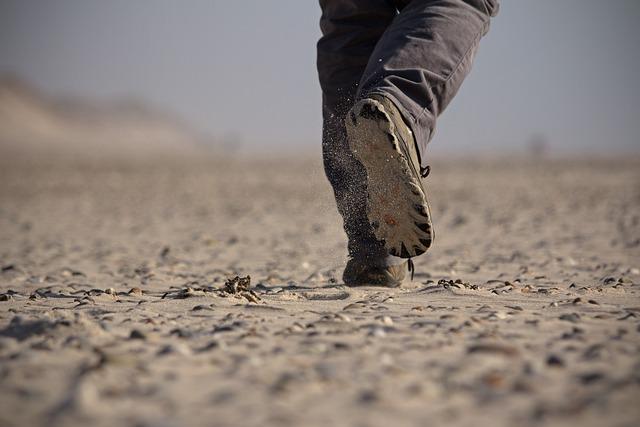
3. Step-by-Step Guide: How to Properly Gargle Salt Water to Treat an Abscessed Tooth at Home
Gargling salt water can be an effective home remedy for treating an abscessed tooth. Follow these step-by-step instructions to properly gargle salt water and alleviate discomfort:
- Step 1: Start by preparing the salt water solution. In a glass, mix 1/2 teaspoon of salt with 8 ounces of warm water. Ensure the salt is completely dissolved.
- Step 2: Take a small sip of the salt water solution without swallowing it. Tilt your head back slightly to prevent swallowing and allow the solution to reach the affected area.
- Step 3: Gently swish the salt water around your mouth, focusing on the area where the abscessed tooth is located. Make sure the solution reaches all corners of your mouth, including the back of your throat.
- Step 4: Continue gargling the salt water for about 30 seconds to one minute. This will help reduce inflammation, kill bacteria, and provide temporary pain relief.
- Step 5: Spit out the salt water into the sink. Do not swallow it, as it may contain harmful bacteria from the infected tooth.
- Step 6: Rinse your mouth with plain water to remove any residual salt taste.
- Step 7: Repeat this process 2-3 times a day or as recommended by your dentist until your abscessed tooth has healed.
Remember, while gargling salt water can provide temporary relief, it is important to consult a dentist for a proper diagnosis and treatment of an abscessed tooth. This home remedy should not replace professional dental care.

4. Unveiling the Healing Properties: Why Salt Water is a Trusted Remedy for Abscessed Teeth
When it comes to finding a natural remedy for abscessed teeth, look no further than salt water. This trusted remedy has been used for centuries due to its remarkable healing properties. Here’s why incorporating salt water into your dental care routine can help alleviate the discomfort and promote the healing of abscessed teeth:
- Antibacterial action: Salt water has powerful antibacterial properties that can help kill the bacteria responsible for causing abscessed teeth. By rinsing your mouth with salt water, you can effectively reduce the number of bacteria present and prevent the infection from spreading further.
- Reduced inflammation: The warm salt water solution can also help reduce inflammation associated with abscessed teeth. It acts as a natural anti-inflammatory agent, soothing the affected area and providing much-needed relief.
- Promotes healing: Salt water aids in the healing process by drawing out toxins and impurities from the abscessed tooth. The saline solution helps to cleanse the area, promoting faster healing and preventing further complications.
Next time you experience the discomfort of an abscessed tooth, consider the natural healing properties of salt water. Incorporating this simple and effective remedy into your dental care routine can provide relief and promote the healing process, ensuring a healthier smile.
5. Debunking Myths: Separating Fact from Fiction Regarding Salt Water Gargling for Abscessed Teeth
Salt water gargling is often suggested as a home remedy for abscessed teeth, but there are several myths surrounding its effectiveness. Let’s separate fact from fiction and understand the truth about this common practice.
Myth 1: Salt water can cure an abscessed tooth.
This is a common misconception. While salt water gargling can help alleviate some of the symptoms associated with an abscessed tooth, such as pain and inflammation, it cannot cure the underlying infection. It should be used as a complementary treatment alongside professional dental care.
Myth 2: Salt water can replace antibiotics.
Unfortunately, this is not true. Antibiotics are necessary to eliminate the infection causing the abscessed tooth. Salt water gargling can provide temporary relief, but it cannot replace the need for antibiotics prescribed by a dentist or healthcare professional. It is important to follow the recommended treatment plan provided by your dentist.
Myth 3: Salt water gargling is always safe.
While generally safe, salt water gargling may not be suitable for everyone. Individuals with certain medical conditions or who are on specific medications may need to avoid or modify this practice. It is always best to consult with your dentist or healthcare provider before trying any home remedies, including salt water gargling.
Remember, while salt water gargling can provide temporary relief, it is not a substitute for professional dental care. If you suspect you have an abscessed tooth, it is crucial to seek prompt attention from a dentist for proper diagnosis and treatment.
6. Expert Advice: Dental Professionals’ Perspectives on the Efficacy of Salt Water Gargling for Abscessed Teeth
When it comes to finding relief for abscessed teeth, many dental professionals have weighed in on the efficacy of salt water gargling. While it is important to note that each individual case may vary, there is a general consensus among experts regarding the potential benefits of this simple and cost-effective remedy.
Here are some key insights from dental professionals:
- Reduces inflammation: Salt water gargling can help reduce inflammation around the abscessed tooth, providing temporary relief from pain and discomfort.
- Promotes healing: The antibacterial properties of salt water may aid in killing harmful bacteria, promoting healing of the abscessed area.
- Easy to use: Salt water gargling is a convenient home remedy that can be easily incorporated into a daily oral hygiene routine.
While salt water gargling can offer some relief for abscessed teeth, it is important to remember that it should not replace professional dental care. Consulting with a dental professional is crucial for an accurate diagnosis and appropriate treatment plan. They can provide personalized advice based on the specific condition of your abscessed tooth, ensuring optimal oral health.
7. Safety First: Precautions and Best Practices When Gargling Salt Water for an Abscessed Tooth
When it comes to treating an abscessed tooth, gargling salt water can be an effective home remedy. However, it is crucial to ensure your safety and follow the best practices for maximum benefit. Here are some precautions and guidelines to keep in mind:
- Use warm water: Start by mixing half a teaspoon of salt in a cup of warm water. Using warm water helps dissolve the salt and provides a soothing sensation during gargling.
- Don’t swallow the solution: Although saltwater is generally safe to swallow, it is best to spit it out after gargling. Swallowing large amounts may cause an upset stomach or increase your sodium intake.
- Be gentle: While gargling, be careful not to gargle too aggressively, as it may irritate the abscessed tooth or surrounding gums. Instead, swish the solution gently around the affected area for about 30 seconds.
Remember, gargling salt water is not a substitute for professional dental care. If your symptoms persist or worsen, it is essential to consult a dentist for a proper diagnosis and treatment. These precautions and best practices will help ensure a safe and effective experience while using salt water as a temporary solution for an abscessed tooth.
8. The Role of Salt Water Gargling in Long-Term Management of Abscessed Teeth: Insights from Dental Experts
Salt water gargling is a widely recommended practice by dental experts for the long-term management of abscessed teeth. This simple yet effective technique involves rinsing the mouth with a solution of warm water and salt. Dental experts have provided valuable insights on the role of salt water gargling in treating and preventing abscessed teeth. Here are some key points to consider:
- Salt water gargling helps reduce inflammation and swelling associated with abscessed teeth. The salt in the solution acts as a natural disinfectant, killing bacteria and reducing the risk of infection.
- Gargling with salt water can provide temporary relief from the pain and discomfort caused by abscessed teeth. It also helps in soothing irritated gums and promoting overall oral health.
- Regular salt water gargling, as advised by dental experts, can aid in the prevention of abscessed teeth by maintaining oral hygiene. It helps remove food debris and bacteria from the mouth, reducing the chances of tooth decay and gum infections.
It is important to note that salt water gargling should not replace professional dental care. If you suspect an abscessed tooth or experience persistent pain, it is crucial to seek immediate dental attention. Dental experts recommend consulting a dentist for a thorough evaluation and appropriate treatment.
9. Enhancing Oral Health: How Regular Salt Water Gargling Can Help Prevent Abscessed Teeth
Regular salt water gargling is a simple yet effective way to enhance oral health and prevent abscessed teeth. This age-old remedy has been used for centuries to combat various dental issues and maintain a healthy mouth. Here’s how incorporating salt water gargling into your oral hygiene routine can benefit your dental health:
- Kills bacteria: Salt water has natural antimicrobial properties that help eliminate bacteria and reduce the risk of infection. Gargling with a salt water solution can effectively cleanse your mouth, reaching areas that regular brushing and flossing may miss.
- Reduces inflammation: Salt water gargling can help soothe inflamed gums and reduce swelling. It can provide temporary relief from discomfort caused by gum infections or abscessed teeth.
- Alleviates bad breath: Salt water gargling can help neutralize odors and freshen your breath. By eliminating bacteria and reducing oral inflammation, this practice can help combat the underlying causes of bad breath.
To incorporate salt water gargling into your routine, simply dissolve half a teaspoon of salt in a glass of warm water. Gently swish the solution around your mouth for about 30 seconds and then spit it out. Repeat this process two to three times a day or as recommended by your dentist or oral health professional. Remember to never swallow the salt water.
10. Exploring Alternatives: Other Remedies for Abscessed Teeth and How They Compare to Gargling Salt Water
There are several alternative remedies for abscessed teeth that can be explored if gargling salt water isn’t your preferred option. Let’s take a look at some of these alternatives and compare them to the effectiveness of salt water gargles:
1. Garlic: Known for its natural antibacterial properties, garlic can help fight off the infection causing the abscess. Crush a clove of garlic and apply the paste directly to the affected area for a few minutes. Rinse with warm water afterward. **Note**: Garlic may cause a burning sensation, so use caution.
2. Clove oil: Another popular remedy, clove oil contains eugenol, a compound with analgesic and antibacterial properties. Apply a small amount of clove oil to a cotton ball and gently dab it onto the abscessed tooth. The oil will provide temporary pain relief and help fight the infection.
3. Tea tree oil: With its strong antimicrobial properties, tea tree oil can be an effective solution for abscessed teeth. Mix a few drops of tea tree oil with a carrier oil, such as coconut oil, and apply it to the affected area. **Caution**: Tea tree oil should never be ingested as it can be toxic.
While salt water gargles can help reduce pain and inflammation, these alternative remedies offer additional benefits. It’s important to remember that these remedies may provide temporary relief but won’t eliminate the underlying infection. Consulting a dentist is still crucial for proper treatment and to avoid any potential complications.
Frequently Asked Questions
Q1: What is an abscessed tooth and what causes it?
A: An abscessed tooth refers to a painful infection that occurs at the root of a tooth or in the space between the teeth and gums. It is commonly caused by severe tooth decay, gum disease, or a dental injury.
Q2: How does gargling salt water help with an abscessed tooth?
A: Gargling salt water can provide some temporary relief for an abscessed tooth. Salt has natural antibacterial properties that can help reduce the bacteria causing the infection. Additionally, salt water can help reduce inflammation and draw out any pus or fluid from the abscess.
Q3: Can gargling salt water completely cure an abscessed tooth?
A: Gargling salt water can provide some relief and aid in the healing process, but it cannot completely cure an abscessed tooth. It is essential to seek professional dental treatment to address the underlying cause of the infection and prevent further complications.
Q4: How should one prepare salt water for gargling?
A: To prepare salt water for gargling, dissolve half a teaspoon of salt in eight ounces of warm water. Make sure the water is not too hot to avoid any burns. Stir the solution well until the salt is fully dissolved.
Q5: How often should salt water gargles be done?
A: Salt water gargles can be done several times a day, depending on the severity of the abscessed tooth. Dentists often recommend gargling with salt water at least two to three times daily or after every meal to help reduce inflammation and promote oral health.
Q6: Are there any risks or side effects associated with gargling salt water?
A: Gargling salt water is generally safe and well-tolerated. However, excessive gargling or using overly concentrated salt solutions may irritate the gums or delicate oral tissues. It is important to follow the recommended guidelines and seek dental advice if any adverse effects occur.
Q7: Can gargling salt water replace professional dental treatment?
A: No, gargling salt water cannot replace professional dental treatment. While it can provide temporary relief, it is crucial to consult a dental expert to address the underlying cause of the abscessed tooth. Neglecting professional treatment may lead to worsening pain, infection spread, and potential tooth loss.
Q8: What are the possible consequences of not seeking professional dental treatment for an abscessed tooth?
A: Neglecting professional dental treatment for an abscessed tooth can have severe consequences. The infection can spread to other areas of the mouth, face, or even the bloodstream, leading to serious health issues. Furthermore, the tooth may become irreversibly damaged, requiring extraction.
Q9: What other home remedies can be used in conjunction with salt water gargles?
A: Alongside salt water gargles, maintaining good oral hygiene practices such as regular brushing, flossing, and using an antiseptic mouthwash can help control the infection. Applying a cold compress to the affected area can also help alleviate pain and reduce swelling temporarily.
Q10: When should I seek professional dental help for an abscessed tooth?
A: It is recommended to seek professional dental help as soon as you suspect an abscessed tooth or experience persistent toothache, swelling, or fever. Only a dental expert can accurately diagnose the condition and provide appropriate treatment to resolve the underlying issue effectively.
The Conclusion
In conclusion, the question of whether gargling salt water helps an abscessed tooth has been thoroughly examined by dental experts. Through their extensive knowledge and expertise, it has been established that while gargling salt water may provide temporary relief from the symptoms associated with an abscessed tooth, it does not address the underlying cause or provide a long-term solution. It is crucial to seek professional dental care in order to properly diagnose and treat an abscessed tooth. Neglecting proper treatment can lead to severe complications and further oral health issues. Remember, when it comes to dental concerns, consulting a trusted dental professional is always the best course of action for optimal care and lasting results.

